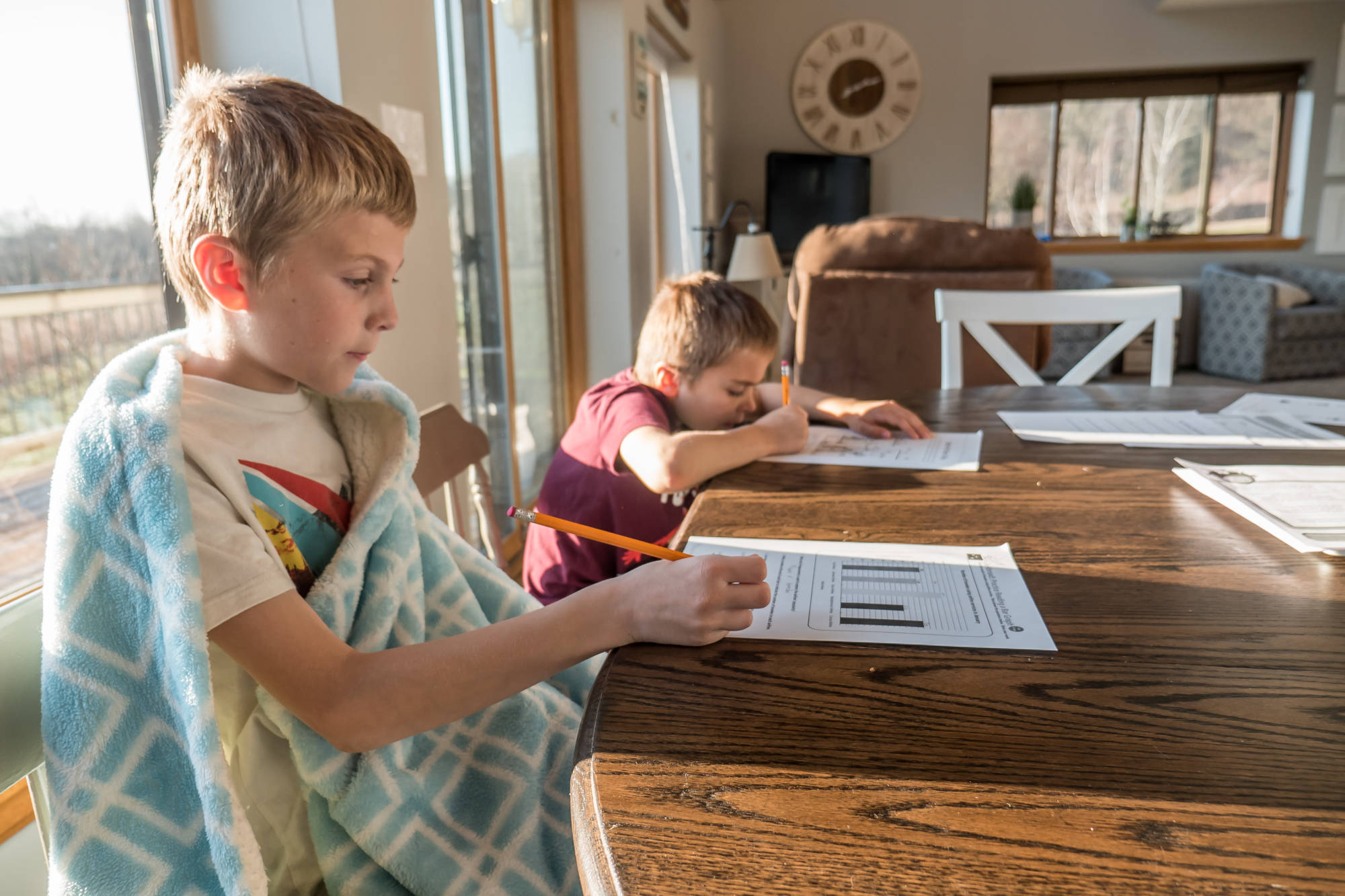The current reality in the world is scary – most of us are working from home, people are getting sick all over the world. There is a lot of uncertainty. In situations like these (i.e. crisis), the best thing you could do is to concentrate on the short-term. Obviously, making long-term plans in times of uncertainty is hard.
My spouse and I are also working from home since March. Our 4-year-old kid is also at home with us. He has a lot of free time during the day, because the education system is, like often, slow to react and adapt to the new environment. After all, do you know that the original idea of the summer vacation for the kids is so that they can help their family with the harvest? Talking about adapting to new times …
Anyway, we decided to give our son’s routine in his own hands and to empower him to define his agenda for the day. We designed a game where we control the rules (i.e. guardrails like for example “max 2 hours of tablet per day”, “family has meals together”, etc.) But we largely let him decide how to self-organize his free time.
In this article, I am describing the way we did this.
Time to read
Time to read: 7 minutes (based on 150 works per minute).
Introduction
So, just to summarize, you and your spouse have a full-time day time job. You are forced to work from home. As the day starts, you are sucked into your own agenda (virtual meetings, virtual interviews, sending and responding to emails, etc.) You rely on your day care to think of something to occupy your kids during the day. And they keep themselves busy finding offline materials, relying on you to spend your days cooking, cutting out different animals from paper, and other useless tasks. Which is ridiculous.
This chapter is about our way of coping with this situation and empowering our kid to self-organize his days. This is a lot to ask from a 4-year-old (or any other kid), this is something that we totally understand. But extraordinary times call for extraordinary measures. And he has been very responsive, brave, and showed a lot of understanding.
Problem
It turns out that this is a common phenomenon. If you have been to a business school, or to any leadership training or presentation, you already know the basics of leadership – delegation, empowerment, trust. However, when you go back home, you revert to the micromanager, whom nobody likes working for.
Personal story
This is exactly the way Tin and I approached the current situation. We tried to impose to our son a routine with conflicting goals that:
- Entertains him for as long as possible.
- Minimizes time watching TV and playing on the tablet.
- Allows us to spend time with him at the end of the day.
- Gives us time do actual deep work during the day.
For the first two weeks, before our child got bored, this worked OK. But still there was a lot of tension in the air. We were getting anxious. He was asking us every 15 minutes what to do next, thus distracting us. After all, he is only four.
But then we listened to an HBR Idea Cast podcast urging us to bring from the office our knowledge about team building and leadership. And also, to move away from the command-and-control type of behavior at home. Once again, from business school 101 – delegation, empowerment, trust.
How can you self-organize the free time of your kid?
To turn this to practice, we decided to create a game for our kid that he controls. We use the rules of the game to impose the restrictions that we want:
- No more than 10 hours of TV during the workweek.
- No more than 10 hours of tablet during the workweek. Note: There is a setting on the laptop which prevents starting games until the other goals are more (30 minutes reading books and 30 minutes watching educational videos).
- 10 hours of “Mommy and daddy” time.
- Breakfast, lunch, dinner together (as often as possible).
And we gave him ideas for other things that he can do: tae-kwon-do lessons on youtube, puzzles, reading books, lego, calling his grandparents.
We sat down on Saturday to create cards for the days of the week, for the hours of the day, and for the different activities. And we created a “board” where we can put the activities for the day (picture below).
How to self-organize the weekly free time of your kids
Finally, we sat with our son and created a 5×12 matrix (5 days and 12 hours) and we let him pick the activities for the whole week (picture below, some labels are in our native Bulgarian which we use at home). We only guided some of his choices (e.g. he wanted to put “grand ma & grand pa time” at 4:00PM, which is 11:00PM in Bulgaria and everybody is asleep). As far as I can tell, he bought into the whole thing and on the next morning the first thing he did was to check his “schedule” on the wall. We were surprised by the high number of “puzzle” activities (and we had to draw a few extra ones) and we defined a prize if he sticks to the schedule for the whole week.

How to self-organize the daily free time of your kids
Once again, our kid is only four-years-old. We discovered that planning once a week is hard for him to visualize the trade-offs. He also forgets that we made a plan on Sunday and it is hard for him to stick to it.
Instead of the weekly planning, we decided to do a daily planning. Each day before he goes to bed, we plan his next day. It has been working wonderful so far.

Summary
What happened in 2020 will probably end up changing a lot of the way we live. There are institutions which were begging for disruption (e.g. education). And these institutions will be forced to change in revolutionary way, because they failed to adapt evolutionary.
But thinking short-term, there is something most of us need to do to survive this working-from-home situation, keep our sanity and our families. This is why we decided to share with you the steps that we are taking to empower our kid to self-organize his days and take his entertainment and education in his own hands.
When the institutions fail you, you need to take care of things yourself!
Originally published at: https://www.fromgnometogoliath.com.


